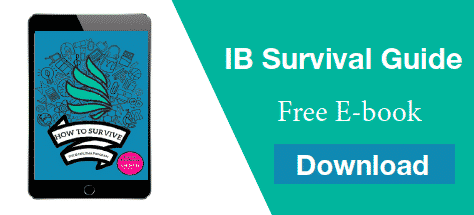When it comes to choosing which curriculum to follow post 16, there’s a lot of options out there. Here at Lanterna, we are all about the IB—it shapes pretty much everything we do. In this series, therefore, I’m going to take a look at some of the reasons why we at Lanterna think the IB is so great, specifically what made ME decide to study it, and why you should definitely consider taking the Diploma Program yourself!
How does it work?
The IB can seem a little strange if you are used to an alphabetical grading system (A,B,C etc), but in reality, it’s actually very simple. A good starting point is knowing that the IB is marked out of 45 points.
You take 6 subjects for the IB: 3 at Higher Level, 3 at Standard Level. 5 of these subjects are chosen from compulsory topic areas:
- Studies in Language and Literature (group 1)
- Language Acquisition (group 2)
- Individuals and societies (group 3)
- Science (group 4)
- Mathematics (group 5)
After choosing a subject from any of these areas, you then have a free choice for your final subject. It can be another subject from the 5 listed above, or it can be an arts subject (group 6).
All these subjects are then graded out of 7—7 being the highest score, 1 the lowest. That means your subjects are worth up to 42 points.
The final 3 points which are up for grabs comes from your IB core. The core of the IB is made up of an Extended Essay, Theory of Knowledge and CAS. (insert links for these). The grades you get in your Extended Essay and Theory of Knowledge combine to give you up to 3 bonus points, and as long as you pass CAS, you can pass the diploma.
Check back for the next edition in this series to learn a little more about the individual subject groups.
Why is the IB different?
The IB is special for a number of different reasons, and you can find out more here on the IB’s official page.
On a more personal level, when I was deciding whether to do the IB, a few things stood out to me.
Firstly- it’s global nature. The IB’s ability to connect students across continents and cultures was something I thought was really cool. As an IB alumni, one of the things I love is that when I meet another IB alumni, no matter where they are from in the world, we have something instantly in common. By doing the IB you get access to a unique international community.
Secondly- the well rounded curriculum. While this initially might not sound as exciting, what really appealed to me about the IB was that it encouraged me to study subjects from all areas of academia. I also like that the diploma focuses on what I thought, not simply what was written in text books. It really encouraged me to think outside the box, and come up with creative and individual ideas and interpretations.
Finally- I really like how fun the diploma program sounded! While any qualification you take post 16 is going to be tricky at points, the IB has loads of different elements which make it really fun as well. For me, one of the really special things is CAS. CAS gives you the opportunity to be creative and innovative with your friends—having fun while getting your diploma. Check out some cool CAS ideas here!
Check back for the next instalment in our Pre-IB series, where I’ll be breaking down each subject area.
Read part 2: Group 1 subjects




